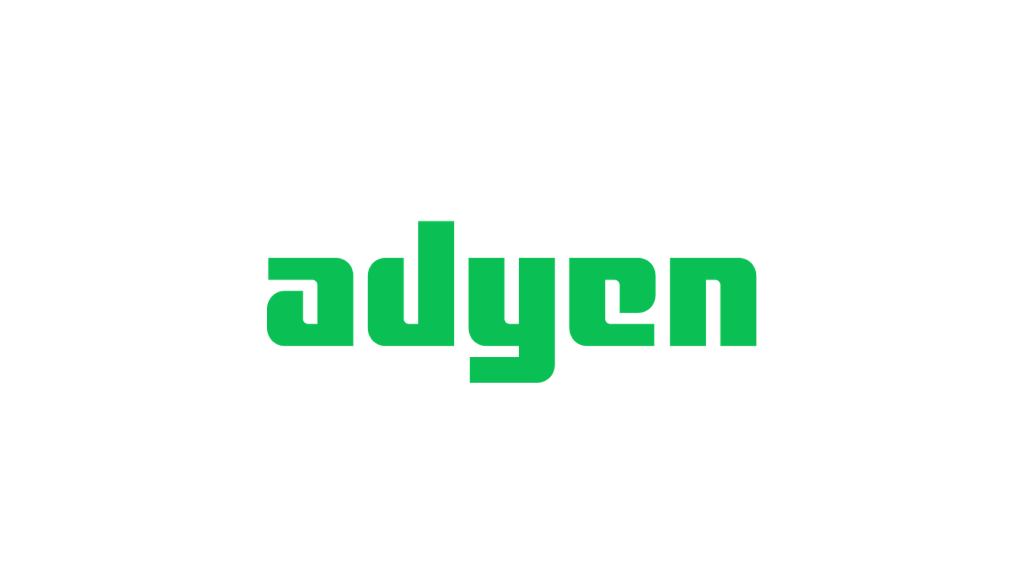Published

n/a
n/a at n/a
In a world where almost everything is connected, and where hackers and other malicious people are roaming the internet, it is always advisable that you take every precaution that see more
- 06:00 am

Open Banking Excellence (OBE), the world’s leading community of Open Banking and Open Finance pioneers, has joined forces with Moneyhub Enterprise and Streeva to take open banking-powered charity donations mainstream.
OBE has partnered with some of the best in the industry to introduce a new method for donations in the UK through scanning a QR code with a phone to pay directly from one bank account to the charity’s bank account and offers automated Gift Aid, which enables charities to claim an extra 25% on each donation.
Moneyhub, the award-winning Open Finance data, intelligence, and payment API provider that brings Open Banking to businesses within and outside of financial services, has joined forces with Streeva, creator of Swiftaid – a Gift Aid solution helping to reduce the half a billion pounds missed each year in unclaimed Gift Aid by fully automating the current onerous process.
This new way of giving uses Open Banking technology and offers huge operational and cost efficiencies.
COVID-19 has dented the ability of the third sector to raise funds due to social distancing, lockdown and a general demise of cash. The challenge has never been greater than now.
Moneyhub created a QR code which will be available on OBE’s website for anyone looking to support one of 4 available charities: MyBnk, SSAFA, EACH, and Bristol Inclusive Thrill Seekers, a charity supported by and local to Moneyhub.
Once the QR code has been scanned with a smartphone, it prompts users to choose a charity and the donation amount. UK-based donors can then pay directly from their bank account to the charity’s account without the complexity of setting up payments in their online banking app. Thanks to Moneyhub’s Open Banking technology that powers it, the payment is instant, using the same Faster Payments infrastructure as for common bank transfers.
Swiftaid automates Gift Aid, a UK tax benefit, which boosts charitable donations by 25%. With Moneyhub’s Open Banking payment API, these charities will not have to pay credit and debit card-related transaction fees, nor need to rent or buy POS card readers.
All this helps charities make the most of each donation.
Samantha Seaton, CEO of Moneyhub, said: “Open Banking and Open Finance are transforming the way consumers interact and manage their finances, and revolutionising how we pay. Half of UK shoppers have not used cash since lockdown began, highlighting the move towards a cashless society. All companies, no matter if large or small, are now easily able to leverage the power of Open Finance and benefit from faster, more dynamic, and incredibly cost-effective payments.
“We are proud that our collaboration with Streeva and OBE means that charities in particular benefit from QR code payments, initiated through our Payment API. Open banking eradicates interchange fees and turns a common smartphone into a payment device. It can minimise donation leakage whilst also increasing donations as it is so quick and easy. It is imperative that those who rely on cash payments, such as charities, adapt to survive.”
David Michael, co-founder and CEO of Streeva, said: “It’s been a pleasure to be involved with this initiative and to work alongside great partners, Moneyhub and Open Banking Excellence. Helping charities gain more through the use of new innovations and technologies at a time that is needed more than ever. I believe that with the right collaborations, we can make a huge difference to the charity sector.”
Helen Child, founder of OBE, said: “We believe in commercial karma. As an industry community with a powerful tool like Open Banking, we felt compelled to create new channels to generate crucial funds. I was touched and proud to see talented people coming together to work on this powerful initiative, helping Open Banking payments become ubiquitous.
"We all read and talk about collaboration. For the Open Banking sector to truly trailblaze and grow I believe collaboration must be our key watchword. The partners have walked the walk, working together to shine a light on the immense talent we have within our community.”
Related News
- 09:00 am

The InsurTech Committee of the FinTech Association of Hong Kong [FTAHK] is pleased to announce the launch of Hong Kong’s first interactive InsurTech map, capturing Hong Kong’s vibrant InsurTech ecosystem on a single page.
The map, which will be regularly updated to reflect Hong Kong’s rapidly evolving InsurTech landscape, is intended to help users of InsurTech services such as insurers, as well as investors, more easily source solution providers and strategic partners in the SAR, whilst at the same time making it easier for InsurTech firms to promote their businesses not only locally, but also around the region and across the world.
The map is powered by The Digital Insurer’s [TDI] InsurTech Directory platform [ITD], which categorises InsurTechs and dynamically links to further information on each firm when readers click their logo. ITD is positioned as The World’s InsurTech Database and, whilst still in its formative stage, already manages the largest freely accessible listing of InsurTechs around the world.
Lapman Lee, InsurTech expert and insurance industry veteran and Jacob Sacuto, CEO of a InsurTech start-up, both Co-Chairs of FTAHK’s InsurTech Committee, say: “Hong Kong as an International Financial Centre has all the right ingredients – a world-class regulator, talent pool and universities combined with a very active investment community - and is poised to become an important InsurTech hub for the Greater Bay Area and the rest of Asia. The InsurTech ecosystem on a page serves as a starting point for insurers to match their needs with the right InsurTech partners and for InsurTechs to promote themselves.”
Simon Phipps, founder at TDI and another industry veteran based in Hong Kong, added: ‘whilst the world needs more insurance, insurers are becoming increasingly aware that they need to transform digitally in order to keep improving for their customers, and InsurTechs are set to play an increasingly important role in the changes that lie ahead. Our purpose at TDI is “working together to accelerate the digital transformation of insurance” and we are delighted to have partnered with FTAHK in line with this mission, to help accelerate connectivity between the big and the small, and the old with the new”.
Related News
- 04:00 am

The FinTech50, the first list in the world to recognise innovative European Fintechs, has announced the 50 companies named to its 2020 list. Leaders from Silicon Valley Bank, Accel, Mastercard, Augmentum Fintech, Schroders, Xero and Commerzbank selected this year’s 50 from over 2000 European companies.
The 2020 50 features established brands, alongside 19 companies new to the list who reflect this year’s focus on innovation that is relevant at this time to people, business and financial services.
Identity, payments, open-banking, banking-as-a-service emerge, unsurprisingly, as hot spaces, alongside innovation that makes business easier (and finance available) at a challenging time for SMEs. In addition, alternative investing, pensions and savings, services that save consumers money on existing credit (rather than selling it at point of sale), the emerging data economy, sustainable finance, and making shareholder voices heard all feature.
This year’s list is in three parts: The Top Ten, The FinTech50, and The Hot Ten, which recognises early-stage companies. This is to add nuance, rather than bundle together companies still in beta with those who have developed a global client base under one umbrella called ‘Fintech’.
Listed this year are (*listed for the first time):
The FinTech50 2020 – Top Ten
1. Onfido
2. Checkout.com*
3. Tink
4. Revolut
5. Raisin
6. OakNorth
7. WeFox
8. Thought Machine
9. Solarisbank
10 Comply Advantage
The Hot Ten 2020
- Cledara* London, UK
- Cerebreon* Donegal, Ireland
- Doconomy* Stockholm, `Sweden
- Finteum* London, UK
- Fronted* London, UK
- Kalgera* London, UK
- PQShield* Cambridge, UK
- Primer* London, UK
- Tumelo* Bristol, UK
- Tomorrow* Hamburg, Gemany
The FinTech50 2020
- Alan
- Anyfin*
- Apiax*
- AQMetrics
- Archax*
- bunq
- BUX
- Clark
- ClearBank
- ClearScore
- Cleo*
- Cloud Margin
- Credit Kudos*
- Datamaran*
- Dawex*
- Eigen Technologies
- Enfuce*
- Everledger
- Farewill
- FintechOS*
- Fluidly
- Form3
- Habito
- HQLAx
- IDnow
- Liberis*
- Metaco*
- Modulr
- Monese
- Monzo
- Moonfare*
- N26
- PensionBee
- Pleo
- Previse
- Privitar
- Qonto*
- Railsbank
- Rapyd*
- Roger.ai*
- Salary Finance
- Sharegain*
- Snoop*
- Starling Bank
- Tessian
- Tokeny
- Tractable
- TradeIX*
- Truelayer
- Yulife*
Related News
- 09:00 am

New data released today by Adyen, the global payments platform of choice for many of the world’s leading companies, underscores the importance of omni-channel retail in mitigating sector and wider economic turbulence caused by the coronavirus pandemic.
Anonymised transaction data[1] across Adyen’s global payments platform found that half of retailers adopting a unified commerce or omnichannel approach saw their total number of transactions remain consistent during the pandemic – meaning that the reduction in sales volumes from stores was offset by online channels.
Adyen’s data also found that shoppers who only ever purchased from a retailer in-store prior to the pandemic spent, on average, 40% more when they shifted online to make purchases during the pandemic.
The importance of unified commerce to the UK retail sector’s performance is further demonstrated in economic analysis commissioned by Adyen and conducted by the Centre for Economic and Business Research (CEBR).
CEBR’s research found that the proportion of retailers selling online via their own website or app averaged just 27% across Europe – but that increasing this proportion even slightly could have a significant positive economic impact.
CEBR used the United Nations’ UNCTAD index to assess European countries’ unified commerce readiness. When controlling for the stringency of country lockdowns, it found that a five point increase on the UNCTAD index was associated with 2.6% better retail sector performance during the pandemic. This equates to a £22.2 billion improvement in the UK’s turnover[2].
However, while online channels were a lifeline to retailers during the pandemic, physical stores are far from dead. Consumer research conducted by Opinium as part of Adyen’s study shows that half of Brits still prefer shopping in physical stores, and just under half (48%) are looking forward to shopping in stores for pleasure following the pandemic.
CJ Weerasinghe, Head of Finance and IT at MUJI Europe comments: “When the lockdown started, MUJI closed its online stores temporarily to ensure warehouse workers’ safety. Once they reopened, sales surged to Christmas volumes. We’re now delighted to welcome shoppers back into our stores and have implemented measures to ensure they feel safe. But we recognise that many customers will still prefer to shop online. So our focus now is to ensure that the MUJI experience is available to our customers, wherever they are.“
Roelant Prins, Chief Commercial Officer at Adyen comments: “Consumers today don’t want to be boxed; they want to shop in a way that works for them – and this might change depending on where they are, how they feel or many other factors. Those retailers prepared to cater to today’s consumers were the ones that won out through the first wave of the pandemic. They were the ones agile enough to cope with the constantly changing environment, and with the infrastructure in place to continue meeting consumer demands throughout this period.
“While something as seismic as the coronavirus may only occur once in a lifetime, the retail sector has been consistently shaken by digitalisation and changing consumer habits. If it’s to survive further shifts, which will inevitably come, retailers need to make sure they’re ready – and adopting a holistic, omnichannel approach will be key to this.”
[1] Blurb on Adyen data
[2] Based on Eurostat Retail turnover figures for 11 European countries studied: Belgium, Denmark, Germany, Spain, France, Italy, Netherlands, Poland, Sweden, United Kingdom and Norway
Related News
- 03:00 am

Brokers using Criteria Hub can now search across a host of new criteria on the market-leading criteria-based sourcing system from mortgage technology expert Mortgage Brain.
Over recent weeks a wide range of new criteria have been uploaded onto Criteria Hub, based on both the firm’s own research and feedback from advisers. The new criteria have all now gone live, after lenders completed the process of supplying the relevant information, opening them up for broker use.
The new criteria include:
● Employment: CIS contractor assessment
● Maximum number of stories where no lift is present
● New build(s) purchased off-plan considered
● Property ownership: splitting of a title deed on completion
● Sole application joint proprietor
● Property construction: tower block with cladding
● Applicants on furlough
Sharon Marshall, Intermediary Sales Director at Mortgage Brain, said: “It’s been a tumultuous time for the mortgage market of late, with lenders and brokers alike having to rapidly adapt to the challenges presented by Covid-19. But even outside of the pandemic brokers are faced with an ever-changing and complex criteria landscape, which is why Criteria Hub is such an important innovation, making it far easier for advisers to understand lenders’ policy and identify the right products for their clients.”
“It’s crucial for us to respond to how the market is changing which is why it’s so vital that we continue to expand the number of criteria on the platform. We would like to pay tribute to advisers for their amazing support, and to lenders who have recognised our mission and embraced it.”
Related News
- 04:00 am

Specialist RegTech provider Shield today announced it has joined the IBM Cloud for Financial Services ecosystem and intends to onboard its communication compliance and surveillance offerings to the platform. Shield will join an ecosystem of Independent Software Vendor (ISV) partners to help offer financial services customers a range of capabilities built on IBM Cloud for Financial Services.
The Shield RegTech platform was designed to support financial firms. It automates and orchestrates the complete eComms compliance lifecycle, delivering all elements of capture, correlation, data enrichment, analytics, proactive and preventive detection. Shield's solution is designed to empower numerous functions within regulated organizations, from departments such as surveillance and monitoring, risk and governance, forensic and control, all the way through to conduct and management.
Eran Noam, VP Global Sales and Business Development at Shield, commented: “Shield is excited to be working with IBM to help create a secured financial services ecosystem where banks, ISV partners and SaaS providers can transact with confidence. Financial institutions are moving to the cloud, so cloud infrastructure providers and ISVs will need to address the special needs of these firms. Onboarding our offering to IBM Cloud for Financial Services will be a big step towards that.”
The IBM Cloud for Financial Services is designed to address the requirements of financial services institutions for regulatory compliance, security and resiliency. The platform is supported by a growing ecosystem of ISV partners committed to onboarding their offerings and cloud services to help accelerate transactions with financial services institutions.
Evaristus Mainsah, General Manager, Cloud, Cloud Pak and Edge Ecosystem at IBM, states: “We are delighted to work with Shield to help them onboard their RegTech offering to the IBM Cloud for Financial Services. Shield’s participation in our ecosystem can help to accelerate the digital transformation of financial services customers by providing solutions designed to address their unique compliance, security and resiliency needs.”
Eran concludes: “We are excited to participate in the IBM Cloud for Financial Services ecosystem. We believe that Shield’s unique capabilities powered by IBM Cloud for Financial Services, can provide significant value to our customers."
For further details on IBM Cloud for Financial ServicesTM please visit: www.ibm.com/uk-en/cloud/financial-services
Related News
- 04:00 am

Paymentology, the UK cloud-native payment processor, is partnering with digital banking platform Thought Machine, to bring rapid integration solutions to established and challenger banks.
By delivering a direct payment processing integration into Thought Machine’s Vault, the partnership will see the creation of a future banking module that removes the need for middleware.
Banks that are currently operating inflexible legacy systems will now be able to benefit from market leading digital solutions through the arrangement, enabling them to bring quality services to market in short timeframes, simplified integrations and without the need to draw on additional third-party components.
Working together, Paymentology and Thought Machine have recently been able to support the successful launch of Standard Chartered’s new digital bank, MOX bank, in Asia which has this month announced its full launch following its initial phase during which it attracted 20,000 pre registrations.
Welcoming the partnership from Paymentology, CEO Shane O’Hara said: “Working in conjunction with like minded fintech businesses means that client facing solutions can be brought to market much more efficiently and more speedily than would be possible through individual platform builds. Through our partnership with Thought Machine we can genuinely meet the requirements of banks requiring digital solutions through direct integrations.”
Related News
- 05:00 am

Commerzbank AG has today very successfully issued another Green Bond with an issuance volume of €500 million. It is the Bank’s second own Green Bond after the first issuance in October 2018. The Bank will use the proceeds to refinance renewable energy projects.
“Sustainability is very important for Commerzbank. In recent years, we have significantly expanded our financing for renewable energy projects. This means that we were now able to issue the second Commerzbank Green Bond providing our investors with an opportunity to participate in the sustainable transformation of the economy,” said Inga Johal, Divisional Board Member Group Treasury at Commerzbank. "We are also responding to the continuing increase in demand for sustainable asset classes. For us as an issuer, it is particularly important to widen the Bank’s investor base by issuing green bonds. The great success of our issuance shows that Green Bonds are no longer a niche topic.”
The non-preferred senior Bond attracted extraordinary keen investor interest. With a volume of more than €4 billion, the final order book at re-offer was 8 times subscribed. The Bond has a term of 5.5 years with a call date in March 2025 and an annual coupon of 0.75 %. Joint lead managers for the transaction were Commerzbank, Danske Bank, ING, Natixis und Santander.
Commerzbank obtained its second party opinion from the renowned sustainability rating agency Sustainanalytics. It confirms that the Bond complies with the latest Green Bond Principles This market standard provides investors with a high degree of transparency with regards to how the funds are actually used. Commerzbank has earmarked the proceeds from the Bond for loans for onshore and offshore wind projects and solar projects in Germany, other European countries, and North America. The projects financed by the Green Bond aim to help avoid CO2 emissions of around 850.000 tons per year.
Commerzbank is an established player in the market for sustainable and green bonds. For years, the Bank has supported its clients to prepare sustainable bonds and place them in the international capital market. "We have strong expertise in this relatively young market. In the current year, we have already lead-managed 20 green and social bond issues with an aggregate volume of more than 20 billion euros," said Marie-Claire Ouizel, Global Head of Bonds.
The Bank has been a signatory of the Green Bond Principles since 2014. Commerzbank has also been a partner of the Climate Bonds Initiative since January 2020. The non-profit international initiative aims to contribute to a CO2-efficient and climate-resistant economy with the global bond market.
Related News
- 01:00 am

Pure Storage (NYSE: PSTG), the IT pioneer that delivers storage as-a-service in a multi-cloud world, today announced it has entered into a definitive agreement to acquire Portworx, the leading Kubernetes data services platform enterprises trust to run mission-critical applications in containers in production, for approximately $370 million in cash. This deal represents Pure’s largest acquisition to date and the company's deeper expansion into the fast-growing market for multi-cloud data services to support Kubernetes and containers.
“As forward-thinking enterprises adopt cloud native strategies to advance their business, we are thrilled to have the Portworx team and their groundbreaking technology joining us at Pure to expand our success in delivering multi-cloud data services for Kubernetes," said Charles Giancarlo, Chairman and CEO, Pure Storage. “This acquisition marks a significant milestone in expanding our Modern Data Experience to cover traditional and cloud native applications alike.”
Portworx is the Kubernetes Data Services Platform most used by Global 2000 companies to provide persistent storage, high availability, data protection, data security, and cloud mobility for containers deployed in hybrid cloud architectures. By combining Portworx container data services with Pure’s industry-leading data platforms and Pure Service Orchestrator software, Pure will provide a comprehensive suite of data services that can be deployed in-cloud, on bare metal, or on enterprise arrays, all natively orchestrated in Kubernetes. With Portworx, Pure delivers the industry’s most complete platform for every stage of the cloud native journey.
Digital leaders are increasingly turning to the cloud native stack to process data into value and insight. Today, 95% of new applications are developed in containers according to 451 Research. By 2025, Gartner predicts that 85% of global businesses will be running containers in production, up from 35% in 2019. Yet, as cloud native scales, traditional and cloud-based storage can struggle to keep-up with the fluid nature of microservice applications deployed in containers, making data resiliency, mobility, security, backup, and recovery a challenge, especially in multi-cloud deployments. Cloud native applications deserve a storage services platform purpose-built to address these challenges. Together, Portworx and Pure deliver this, today.
“I’m tremendously proud of what we’ve built at Portworx: an unparalleled data services platform for customers running mission-critical applications in hybrid and multi-cloud environments. The traction and growth we see in our business daily shows that containers and Kubernetes are fundamental to the next-generation application architecture and thus competitiveness,” said Murli Thirumale, CEO, Portworx. “We are excited for the accelerated growth and customer impact we will be able to achieve as a part of Pure.”
Portworx is the industry’s leading Kubernetes Data Services Platform used by enterprises including Carrefour, Comcast, GE Digital, Kroger, Lufthansa, and T-Mobile and was named the Leader in the 2020 GigaOm Radar for Data Storage for Kubernetes report.
“As a leader in multi-cloud and on-premise log management solutions, data is at the heart of our business,” said Tucker Callaway, CEO, LogDNA. “We work with Portworx because they provide the market-leading Kubernetes data services platform that allows us to offer the same fast, reliable, protected, and secure logging solutions to our customers, no matter where they decide to run their applications. We can see the power of this combination and look forward to many more years of sustained data-driven innovation from Pure Storage and Portworx.”
"Esri's ArcGIS software delivers location intelligence for some of the world's most pressing problems including Covid-19 tracking, fire mapping and disaster management," said Brian Cross, Director of Professional Services, Esri. "We are proud to have worked with Portworx to implement cutting-edge cloud native storage technologies allowing our customers to solve these types of geospatial problems at massive scales. Portworx is a key partner for Esri as we develop and release our next generation of Kubernetes-based real-time capabilities, and we look forward to continuing our work together as it evolves with Pure Storage."
“In 2019 we evaluated Kubernetes storage platforms for one of our services and after thorough research we decided on Portworx,” said Sven Sonnendorfer, Community Manager, Audi Business Innovation, a 100% subsidiary of Audi AG who provide cloud services to VW Group members. “The improved performance compared to the standard Kubernetes storage provider, the included features, reliable operations and upgrades and the great support demonstrate that this was the right decision. Portworx saves us time and money by providing more reliable tooling to our customers.”









